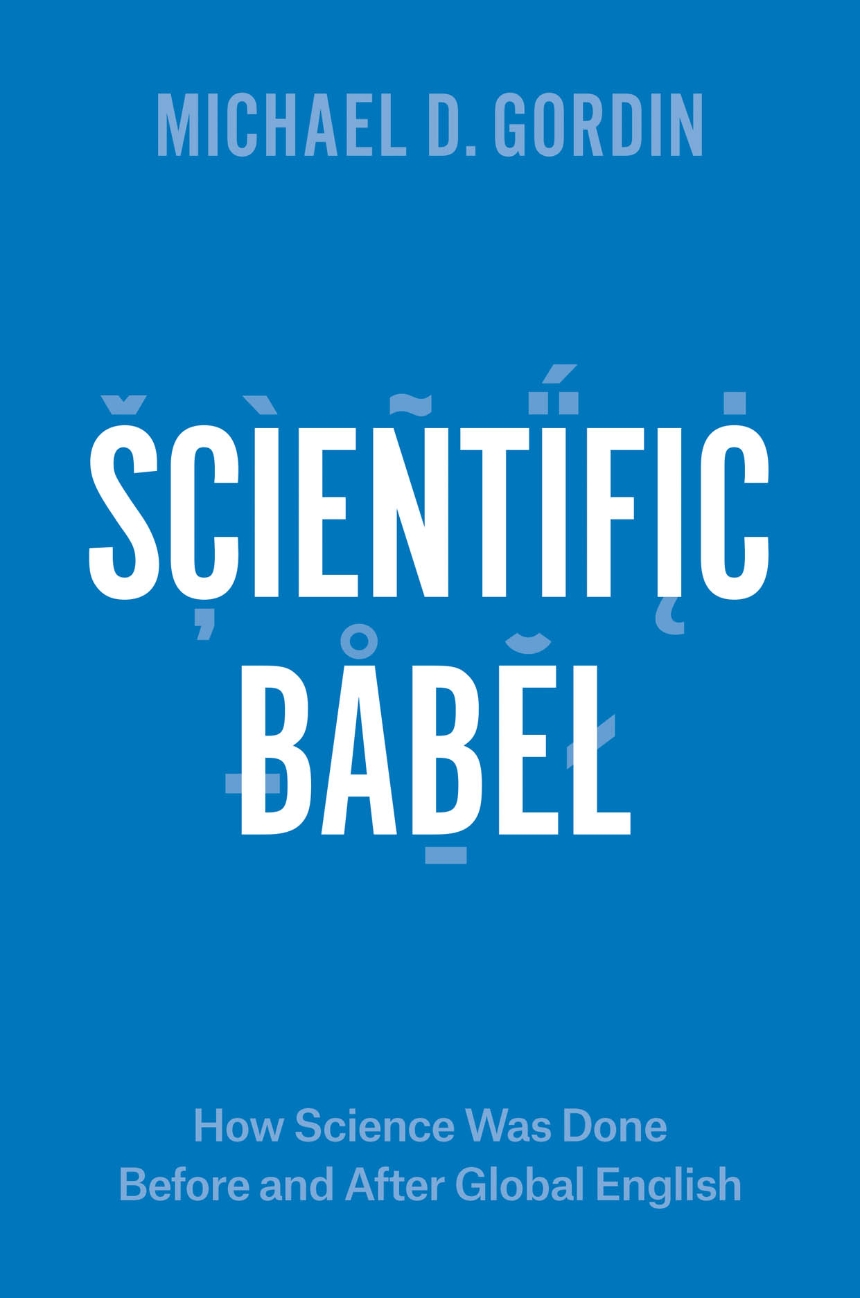Scientific Babel
How Science Was Done Before and After Global English
So how did we get from there to here? How did French, German, Latin, Russian, and even Esperanto give way to English? And what can we reconstruct of the experience of doing science in the polyglot past? With Scientific Babel, Michael D. Gordin resurrects that lost world, in part through an ingenious mechanism: the pages of his highly readable narrative account teem with footnotes—not offering background information, but presenting quoted material in its original language. The result is stunning: as we read about the rise and fall of languages, driven by politics, war, economics, and institutions, we actually see it happen in the ever-changing web of multilingual examples. The history of science, and of English as its dominant language, comes to life, and brings with it a new understanding not only of the frictions generated by a scientific community that spoke in many often mutually unintelligible voices, but also of the possibilities of the polyglot, and the losses that the dominance of English entails.
Few historians of science write as well as Gordin, and Scientific Babel reveals his incredible command of the literature, language, and intellectual essence of science past and present. No reader who takes this linguistic journey with him will be disappointed.
424 pages | 9 halftones | 6 x 9 | © 2015
History: General History
Language and Linguistics: General Language and Linguistics
Physical Sciences: Physics--Popular Books
Reviews
Table of Contents
Introduction: Talking Science
Chapter 1: The Perfect Past That Almost Was
Chapter 2: The Table and the Word
Chapter 3: Hydrogen Oxygenovich
Chapter 4: Speaking Utopian
Chapter 5: The Wizards of Ido
Chapter 6: The Linguistic Shadow of the Great War
Chapter 7: Unspeakable
Chapter 8: The Dostoevsky Machine
Chapter 9: All the Russian That’s Fit to Print
Chapter 10: The Fe Curtain
Chapter 11: Anglophonia
Conclusion: Babel Beyond
Acknowledgments
List of Archives
Notes
Index
Awards
History of Science Society: Watson Davis and Helen Miles Davis Prize
Shortlist
